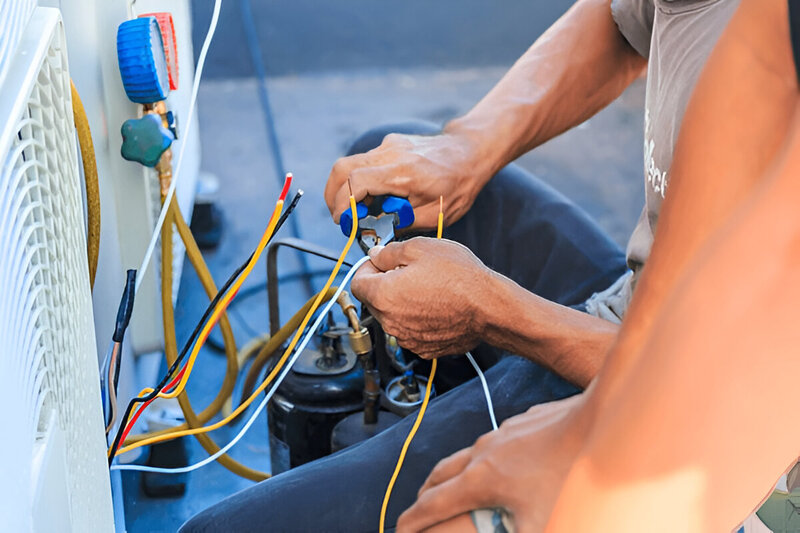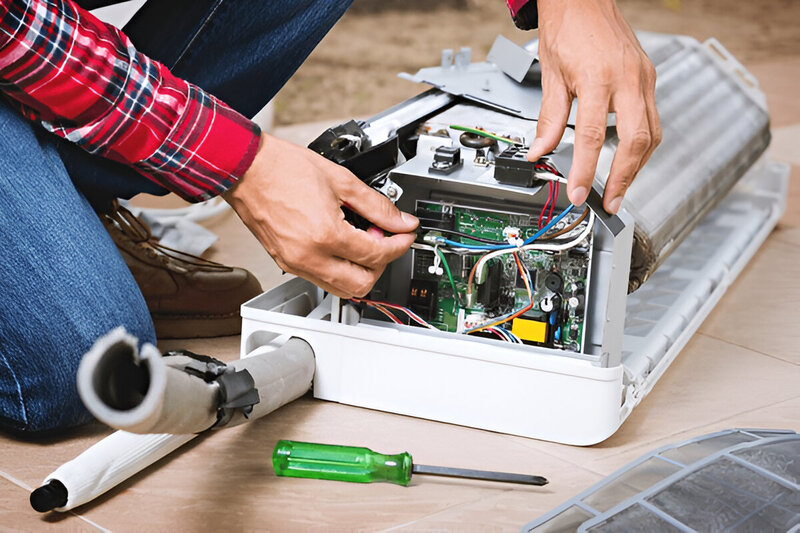
Have you ever found the heating gone cold in the dead of winter? Or warm air gushed from your air conditioning in midsummer instead of the refreshing chill you craved? Such little shocks often remind us just how much we rely on our heating-and-cooling systems to keep our homes comfy. Very few people consider maintenance and servicing before something goes wrong.
In this post, we’re talking about heating-and-air conditioning service in Australia. We will look into why regular servicing is so important, when to organize servicing, and what you can do to keep your systems running fine. And we will cover all the popular systems you might have in the home—ducted heating, split systems, gas ducted heating, and reverse cycle air conditioning.
By the end, you will be well informed on the general servicing process for aircon systems, frequency of service for ducted heating, and the possible costs of any heater service. We will debunk some myths, answer some FAQs, and set you in the right direction for the professionals. Looking forward?
Why Heating and Air Conditioning Service Matter
Why Regular Maintenance is So Important
Regular maintenance is key to keeping a heating and/or cooling system in top working condition. An annual maintenance check for air conditioners prevents the components from being clogged up with dust, dirt, or mould. That ensures steady airflow and consistent cooling power when you need it on those hot summer days in Queensland or stuffy nights in Western Australia.
Heating systems benefit equally from being tended to. A gas ducted heating service check-up examines gas leakages, gas pressure regulation, and the safe operation of machinery, to mention a few. If you have these things checked about once a year by the best local heating and air conditioning service providers, you are less likely to incur expensive repair bills and can keep your enclosed spaces comfortable when the chill sets in.
Regularity in servicing also leads to maximizing energy efficiency: working less means lower running costs in the long run (a boon for both) for the system and the environment.
Debunking Common Myths
A common urban legend states that heating and air conditioning units only require servicing when something has gone awry. In the real world, do air conditioners require servicing even if they seem to be functioning well? Of course. Being able to get onto problems early will end up saving you lots of money with respect to possible big fixes later on.
Another one is they say that new systems never need any maintenance. While these newer versions may have better features, they still need checks now and then to keep them in trim. Think of it; it’s a brand-new car; it’s working but still undergoes oil change and basic inspection checks to keep it running smoothly.
Lastly, there are some who, for their part, hold DIY repairs can fix most minor problems. Sure, changing filters is easy, but a lot of other delicate modifications require industry experts to handle them. Complicated tweaks without enough knowledge will, at best, create a bigger mess—or even more costly mess.
Heating and Cooling System Overview
Variances of Split Systems and Ducted Systems
From mini-split or split-type systems through ducted systems, heating, and cooling systems come in many designs and configurations. Usually, an indoor unit is joined with an outdoor compressor for a split system. This option is generally preferred for economic considerations, ease of installation, and, if managed prudently, energy efficiency. Such an option suits well for smaller homes or single-room applications.
Ducted systems have ducts typically installed in a ceiling or under a floor distributing warm or cold air across different parts of the house. If you deal with large premises, or for that matter, if you want all your rooms evenly temperatured, ducted air conditioning is your best friend.
Gas Ducted Heating versus Reverse Cycle Air Conditioners

Gas ducted heating is still one of the most common options to warm your space. Operating on natural gas, it distributes warm air through a series of ducts; thus, it can become cost-efficient when applied for the heating of an entire home. Because of its gas combustion mechanism, it often tends to heat up quicker than some electric-based systems.
Reverse cycle air conditioners, on the other hand, are electric machines capable of both heating and cooling. They absorb heat from outside air during the winter and reverse this in summer to provide cooling. Undoubtedly, such dual-function appliances could be most beneficial and advantageous concerning saving space. Do keep an eye on your electricity costs while using reverse cycle air conditioners for prolonged periods.
Full Insights About Central Heating
In a widely employed valuation, central heating is one whereby heated air or hot water or steam is generated in one location and diffused over the property. There are many, but basically, a boiler heats up water and pumps hot water into pipes up to the radiators or into floor heating elements. This will vary in design, but it is basically stated that the owner intends the heat to be distributed through the entire house uniformly.
Central heating is often touted as providing a stable and quiet environment in the house, for which many are grateful. However, remember to have the boiler, pipes, and vents checked so that you are not spread too thin on an unexpected leak or break down, mainly on those cold winter mornings.
The Frequency of Air Conditioner Servicing
Yearly Air Conditioning Service Requirement
Another question commonly asked is, “How often should you service an air conditioner?” The experts say generally that once a year is an optimal period, with the servicing done preferably before the heating-hot season to spot and rectify minor issues early on. This is vital, especially if you use your system intermittently or are located in areas prone to the extreme heat of heat waves.
In order to keep parts of your air conditioner functioning properly, servicing your air conditioner every year should prolong its life and also give you an assurance of better air quality indoors. If the appliance is older or in use almost continuously, it may warrant even more frequent check-ups to be on the lookout for any potential wear and tear.
General Aircon Servicing: What’s Involved
Common service for general air conditioning generally includes cleaning and changing of filters, refrigerant checks, and inspection of electrical connections. An experienced technician will knock and listen for any leaks, peculiar disturbances or signs of corrosion. They may run performance tests to confirm that these components are working in concert.
Besides having this tune-up, they clean the outdoor condenser unit from dust and debris, which largely affects the clogging parts and, as such, cripples airflow. Once that is over, you will probably notice that your air conditioner operates more efficiently and feels even stronger while cooling the space.
Common Indicators Your AC Needs Attention
The first sign that your air conditioner needs repair is usually fiddling with the thermostat continually or smelling some strange odor every time your aircon kicks in. Another giveaway is the inexplicably soaring energy bills—an overworked or poorly maintained system tends to guzzle electricity.
Watch out for water leaking from your vents or a strange rattling sound. Most regarded as a blocked drain, but it sometimes indicates bigger issues hiding within the unit. When in doubt, talk to a licensed technician and have them diagnose the problem and option for the right way of repair.
Conclusion
Of importance, comfort, cost savings, and long-term reliability have been discussed as reasons for servicing your heating and cooling system. Gas ducted heating, split system, or even central heating are all benefits that come along increased inspections cut the risk of getting unexpected breakdowns. Besides, a well-maintained unit works more efficiently, saving the consumer even more.
With this, the diverse climate would require a heating and cooling system that could be reliable in hot summers and cold winters. Routine maintenance will hopefully bring fewer hassles, fewer bills, and a cozy indoor environment throughout the seasons. This is the time to call and book that service to breathe a little easier for any outcome the weather may bring.